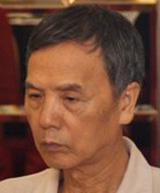On December 26, 2013, Japanese Prime Minister Shinzo Abe blatantly visited the Yasukuni Shrine where 14 Class-A war criminals of World War II are honored. On the same day, the United States Embassy in Tokyo said in a statement on its website: “Japan is a valued ally and friend. Nevertheless, the US is disappointed that Japan’s leadership has taken an action that will exacerbate tensions with Japan’s neighbors.” The same or similar position has been repeated by the spokesperson of the US Statement Department. The American statement on the question of Abe’s visit to the Yasukuni Shrine was interpreted in the media as unusual US displeasure with Japan. Then, the US Defense Secretary Chuck Hagel, in a delayed telephone conversation, told the Japanese counterpart the importance of Japan’s efforts to improve relations with Japan’s neighbors. It is a significant step taken by the US on Japan despite the fact that the US reiterated that Japan is its valued ally and friend.
Disappointment may be different from protest or condemnation in diplomatic terms, but it does express a sort of displeasure or dissatisfaction. The US disappointment with Abe didn’t come about overnight, and it may have revealed that Abe’s obstinacy has already slighted or will continue to snub the US on vital issues concerning the national interests of the two countries. A quick look at what happened weeks before Abe’s visit to the Yasukuni Shrine may tell the story.
In October 2013, when US Secretary of State Kerry and Defense Secretary Hagel visited Japan, they specifically took time out of their tight schedule to pay their respects at Chidori ga Fuchi, a cemetery near Tokyo’s Imperial Palace. In the view of American strategists and diplomats, Chidori ga Fuchi is the closest equivalent to the American Arlington National Cemetery that American leaders visit annually as a tradition. The two top American diplomats did this in the hope of persuading Abe by example into giving up his intentional visit to the Yasukuni Shrine at any time. However, the harsh fact is that their benign hopes have been relentlessly crushed.
According to media reports, during his recent visit to Japan in October 2013, Vice President Joe Biden also advised Abe not to visit the Yasukuni Shrine. However, the US Vice President’s kind advice was also ignored.
Interactions between the US and Japan with regard to the visit by Abe to the Yasukuni Shrine has caused policy-makers of both countries and world observers to think about the related issues in the bilateral relations between the US and Japan.
Why will the action taken by Japan leadership exacerbate tensions with Japan’s neighbors? Does the US share the assessment that Japan is the tension-maker in East Asia since Abe’s visit to the Yasukuni Shrine will exacerbate tensions? Why should the US pay great attention to the tensions between Japan and its neighbors, and not the nature of Abe’s visit to the Yasukuni Shrine, in the cause and effect relationship between the visit and the tensions? All these questions have revealed the deep divisions in the so-called US-Japan military alliance and ever growing challenges the US must face in dealing with Japan, and also in its rebalance strategy in Asia.
Firstly, facts of history are not to be denied. It is the Japanese fascists that killed innumerable Chinese, Americans, Koreans and other Asians during World War II. Therefore, those war criminals housed in the Yasukuni Shrine should always be condemned instead of being paid tribute to at any time. Abe’s visit to the Yasukuni Shrine has stabbed many Americans to the heart, especially those who lost their loved ones in the war against the Japanese aggression. Although US government officials remained silent, many Americans have spoken out, denouncing Abe’s visit to the Yasukuni Shrine. It is plain truth that those who died for fascist aggression can never be put on a par with those who died for fighting against the Japanese fascist aggression. It is a matter of principle of aggression versus anti-aggression.
Secondly, Abe’s obstinacy has become a new irritant in US-Japan military alliance. On the question of his visit to the Yasukuni Shrine, Abe has ignored US concerns expressed and the advice offered on a number of occasions, and persisted in his wrong way. It has given rise to the deep worry on the part of the US that whether or not Abe will do the same on other vital issues concerning US national interests.
Thirdly, the US-Japan military alliance has lost its foundation of existence with the end of the Cold War. It no longer has a formidable common enemy even when some people in Japan are trying their best to create one. Therefore, the foundation of the alliance remains questionable. The so-called “China threat” made up by some in US and Japan can never truly serve as a base for the continued existence of the military alliance. The repetition of the statement that the so-called China’s Diaoyu Islands could be included in the application of the US-Japan Defense Treaty could hardly be put into real practice. It is a foolish idea that will never succeed for the US to foster Japanese military machinery to help contain China. The most probable result of that idea will be that China is not contained and will keep on growing strong while Japan becomes bolder enough to ignore US advice and interests, and even try to become the leader in Asia. It is also unthinkable for the US and China to go to war because of the conflict between China and Japan.
When we believe that the US decision to express disappointment over Abe’s visit to the Yasukuni Shrine is significant, it is because the decision indicates that the US has been awakened to a certain degree to the dangerous road Abe and his cabinet have embarked on. The US has at long last realized that it should do something before it is too late. Frankly speaking, this first step by the US is far from enough, and more steps are needed before it can effectively help Abe and his cabinet correct their mistakes and return to the correct path of peaceful development, and at the same time play a constructive role in promoting peace and stability in East Asia.
Wu Zurong is a Research Fellow at the China Foundation for International Studies.

